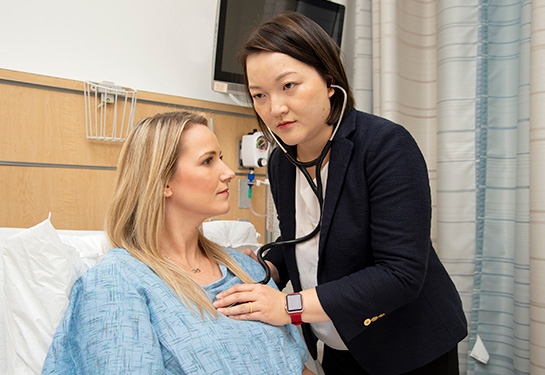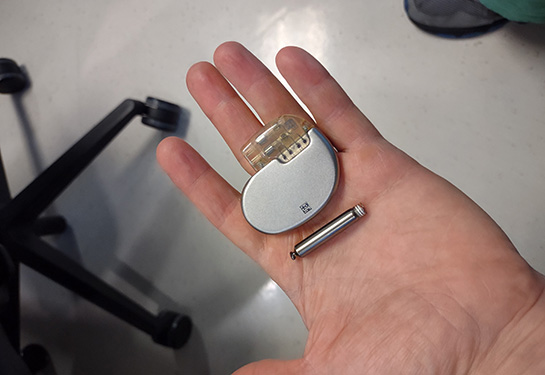Cardiovascular medicine fellowship program receives grant
Funding will support training and mentoring opportunities for clinical fellows
The Division of Cardiovascular Medicine at UC Davis Health has been awarded the Second Century of Science Clinical Fellow Research Education Award from the American Heart Association (AHA). The grant will provide funding to support training and mentoring opportunities for clinical fellows enrolled in the division's programs.
This year marks the first time UC Davis Health has been awarded this prestigious accolade, which is focused on fostering and developing the next generation of clinician researchers and clinician educators.
“This award exemplifies our strong belief within cardiovascular medicine of the importance of developing a mature, responsible and impactful cardiologist workforce for the future,” said Sandhya Venugopal, clinical professor and program director of the cardiovascular medicine fellowship program. “I am incredibly proud of our fellowship team, who worked tirelessly to earn this grant. Their commitment to the fellowship and promotion of these important pathways are noteworthy and an inspiration to us all.”
As the AHA approaches its 100-year anniversary, the organization allocated additional one-time funding this year to support the Clinical Fellow Research Education Program, with the goal of helping to address critical gaps in health care.
The funding will allow up to five fellows per year from each program to attend the American Heart Association Scientific Sessions or the American Heart Association/American Stroke Association International Stroke Conference. It will also allow fellows to engage in other medical specialty events and activities that will help them gain knowledge and expertise as research scientists.
“Research has been the foundation of the American Heart Association from the beginning, and we recognize that scientific research continues to be our most critical path forward to ensuring longer, healthier lives for all,” said Mariell Jessup, chief science and medical officer of the AHA. “As we embark on our next century of lifesaving work, we are excited to support bold, innovative investigators like those leading this new initiative, to meet the challenges of today and of the future.”




